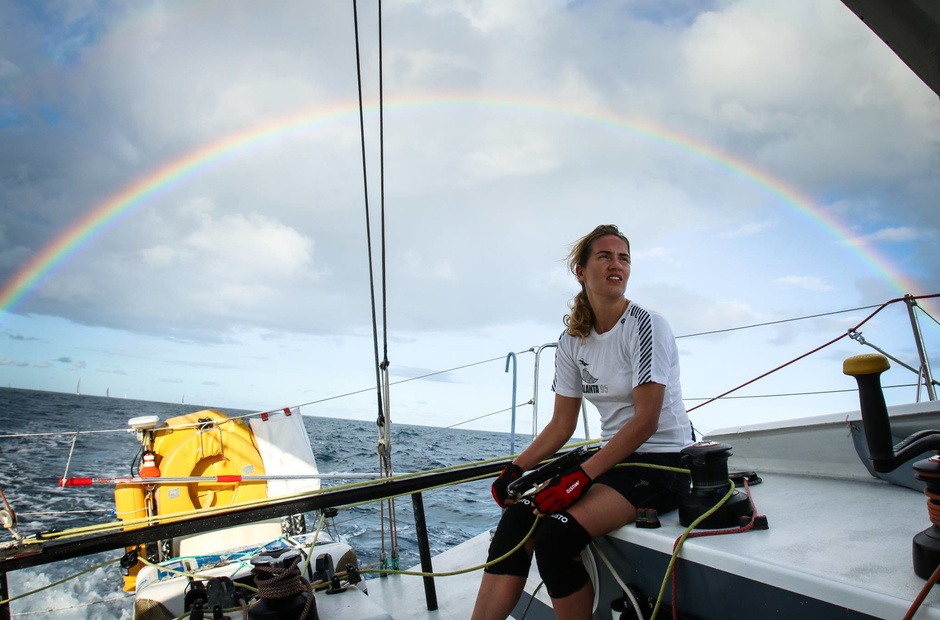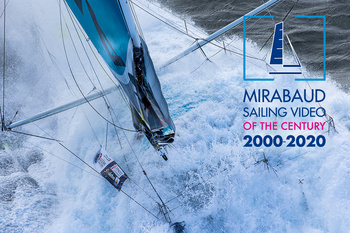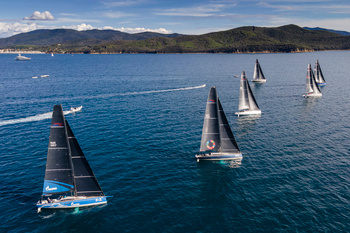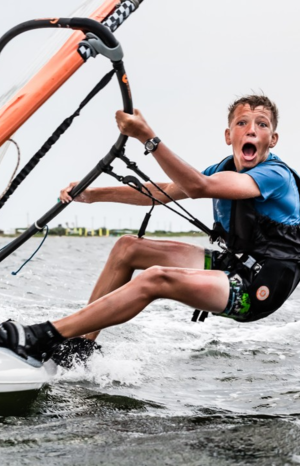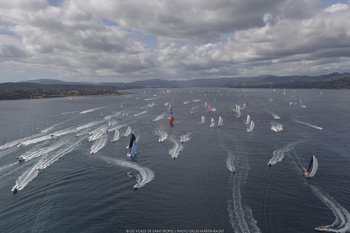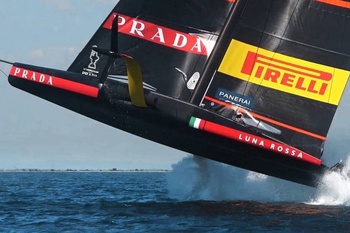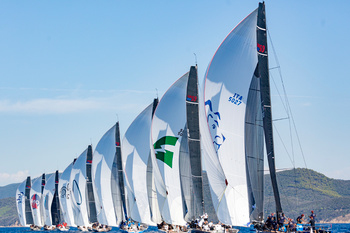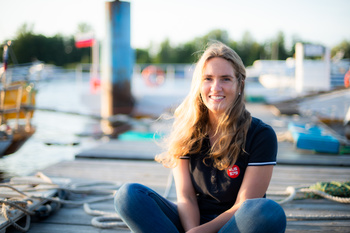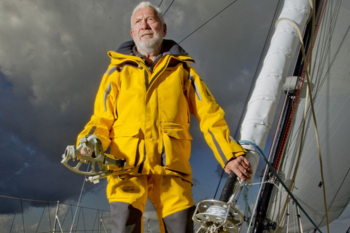Happiness, as we know, is different for everyone. For Irina Gracheva, it is to reach the peaks of skill on the chosen path, constantly throwing new challenges and taking them.
Irina Gracheva is the first Russian yachtswoman to participate in a single race across the Atlantic Mini-Transat. She is currently at the launch point of the Mini-Transat 2019 in La Rochelle with her 6.5m production boat Mini «Cachaca», awaiting better weather conditions. Julia Sobornitskaya talked to Irina Gracheva about how she came to sailing and how she decided to join the ranks of single yachtsmen.
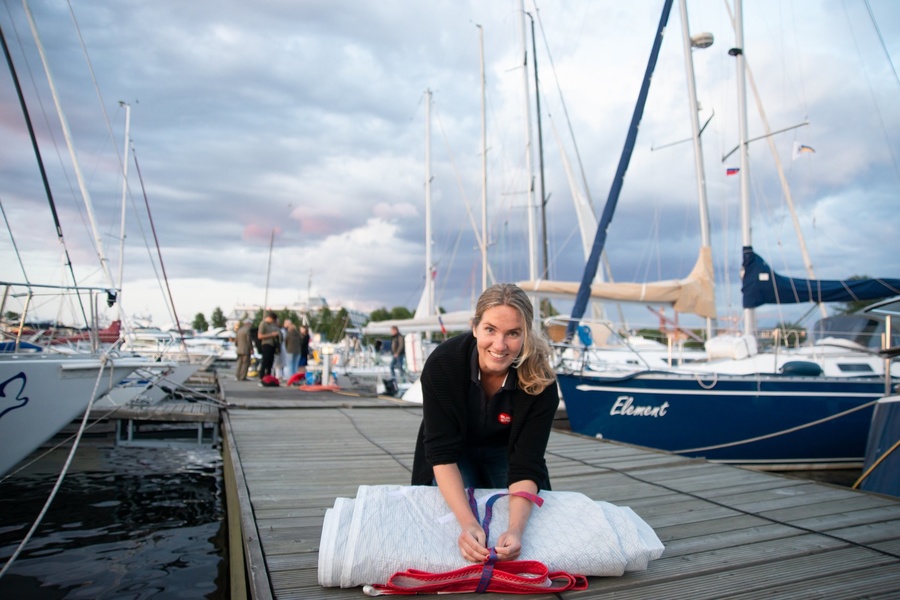
«My coach had a position: learn how to win on the bad.»
It all started in the distant 90s, when 12-year-old Irina came to the sports children's and youth school of Olympic reserve in St. Petersburg. She walked a schoolgirl on a deuce in the class of Cadet«, the»atmosphere around was friendly and it was attractive. It was still a long way from the first successes. The first steps the young yachtsmen made on old boats, want better and newer - buy for your money, but Irina's family could not allow it.
«I was saving on breakfast then to renew the same ropes, for example. My coach had this position: learn how to win on the bad, then get the good. I went through it and I don't regret it. When the results became better, we got a better match and it was easier»to win," Irina recalls.
There was no money for trips to prestigious regattas, too, we raced at those competitions, which took place in St. Petersburg on the Gulf of Finland or near, on Ladoga, on Onega. It was interesting, there was excitement, and experience gained.
«The boat can turn over, it's a common thing.»
Once they were racing on the Gulf of Finland in the Olgino area. There was a strong storm, a lot of boats went off the track ... Rescue boats were down, there were not many of them at all and all the crews just could not help.
Irina's yacht started to sink.
The crew, of course, were saved, but the losses were great: the boat lost its sail, geek, other equipment and went under water itself.
Three days later, the yacht was found. We wanted to cheat, but the future racer insisted on bringing her back to life. She spent long hours repairing her. Friends helped a lot. In the end, she performed on this boat for a long and successful time.
«This case was a good test, because the dinghy and the yacht can turn over and this situation is quite standard. After such cases some guys were in shock and it became clear: yachting is not for them. And then this incident didn't knock me out»," Irina said.
Then she tried «the Ray», also an old one, went to the quarter-ton «Quartet» in the epipage of the famous yachtsman Vasily Alekseev in St. Petersburg and beyond. With him Irina went to international regattas in Estonia and Finland for the first time.
«I was fascinated by the impressions," she said. - What places were occupied - I do not remember anymore, for me it was important that back in those years, at the junction of the nineties - zero, Vasily was always aimed at participating in landmark competitions, did not want to boil in his own juice and did not let the team do it. I liked this ambition.
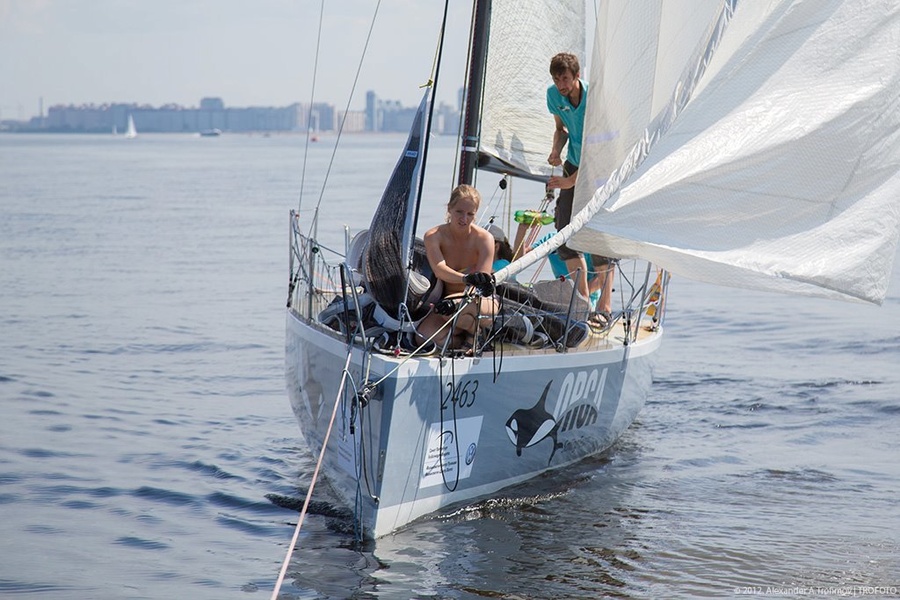
Open class 800 Irina has given 9 years. Her favorite position was tank position. On a sailing ship it is the key role: if the tank ship does not have time, the whole crew can relax and not think about the prizes anymore. Nevertheless, Irina began to think more and more: how much exactly does she contribute to the overall success?
«And what happens if I'm alone «on the farm ?»Will I manage ? And what do I stand for as a racer?»
«And what happens if I'm left in the boat alone?»
The logical continuation of the yachting career was the active participation in offshore races: Rolex Fastnet Race, Rolex Middle Sea Race, RORC Caribbean 600, Fastnet Race and Gotland runt. In 2015 as a member of the international sailing team Irina overtook Cape Horn.
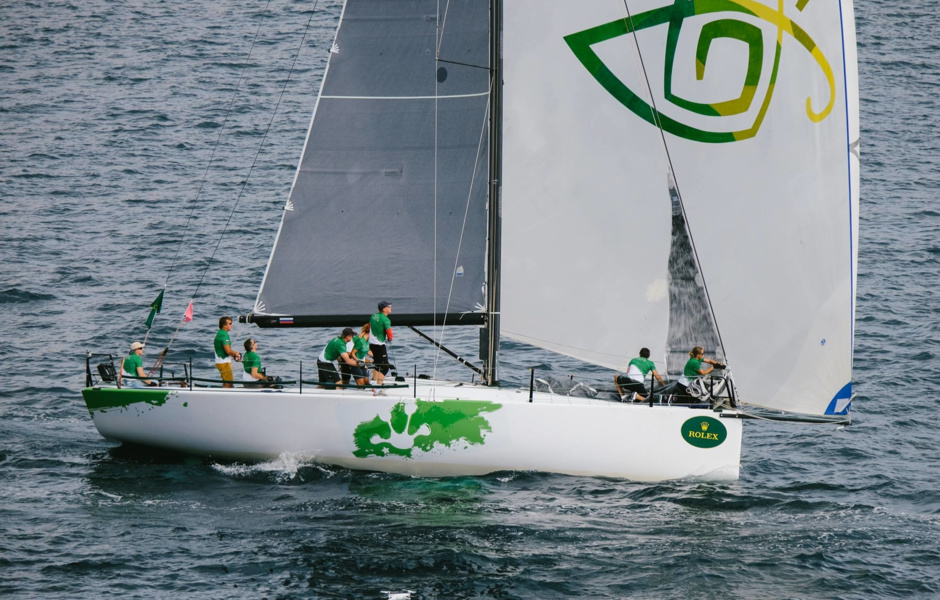
One of the yachtsmen told Irina about the Mini class, and also showed the picture.
«The response went right away: I need it! On the Mini-Transat go alone across the Atlantic, the boat is small (6.5 meters), and will be able»to - thought Irina.
Yuri Firsov, who was the first Russian to qualify for the Mini Transat-2015, then estimated the construction of a new boat at 120 thousand euros. Not extreme, of course, but where to get this money, even if the option is cheaper, Irina could not imagine.
But one of her rules of life says: if you don't try, you'll achieve nothing for sure.

What was pushing Irina to find new calls then? Leadership qualities? It's possible. But she clarifies:
«I know how to organize myself and the people around me well. I do not always have to be ahead and lead everyone, on the contrary, I am ready to obey the one who is more authoritative. It just so happened that I»was in this role more and more often.
Just before the start of the 2018 yachting season, Irina finally got her yacht. She bought the boat quickly - by the season, otherwise she simply would not have had time to find the miles she needed according to the rules of qualification. She chose a production boat CACHACA-579, built in 2005. It is not new, but combat, participated in two Mini-Transat races, in 2015 and 2017, and was much more affordable. Today, by the time she started, Irina had walked over 9,000 miles on her small yacht.
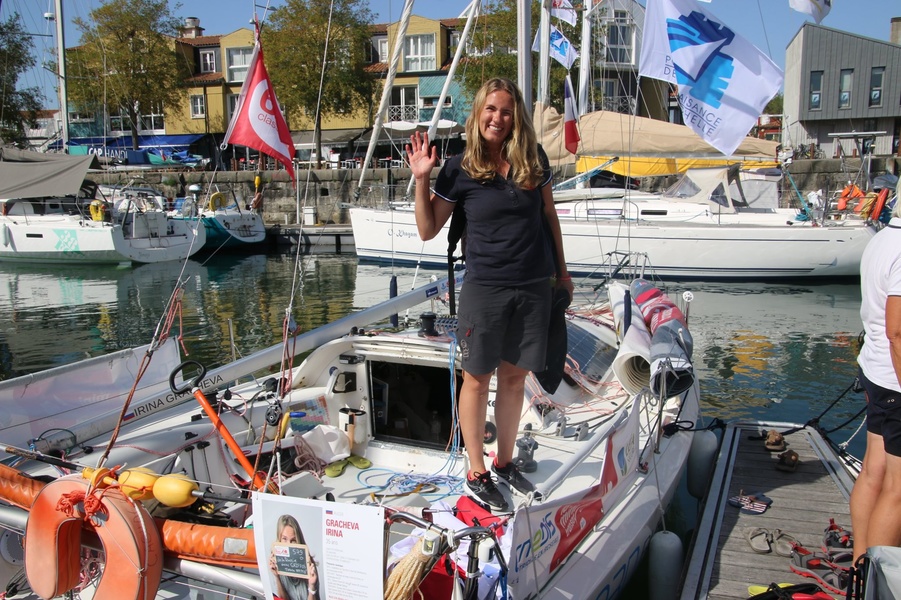
Starting her project, the racer analyzed what she already knows and what she should learn. On the one hand, she had a wealth of experience: she was guided by maps, understood the situation in general, walked as a helmsman, tactician, skipper, could fix some small breakdowns. At the same time Irina knew that she would have to solve absolutely all problems on board the yacht herself. As a result, she took an astronautical course to learn how to use the sextant and be able to determine her place in the sun, and made up for the lack of technical knowledge, because to win the race, you have to first reach the finish line.
«As soon as she bought a yacht, she decided: I'll go chasing right away. I got a complex technical device, in a month the first races alone, and I simply do not have time to learn the yacht. But the wedge is kicked out with a wedge. Yes, I had some panic, and, frankly speaking, it was hard, but it's over now, and I'm grateful for this experience, - says Irina. - And of course, I was afraid of how I would feel in the ocean for a long time alone. The fears were in vain, I was pleasantly surprised: I felt fine».
A boat 6.5 meters is like the Oka, «»only on water.
Slowly she and the boat were rubbing together. For example, in the season-2018 Irina successfully competed in such regattas as Pornichet Select 6.5 Solo, Trophee Marie-Agnes Peron, Mini Fastnet double handed, Qualification solo sailing and Les Sables-Acores-Les Sables solo.
A yacht 6.5 meters in feeling is a car «Oka», only on water.
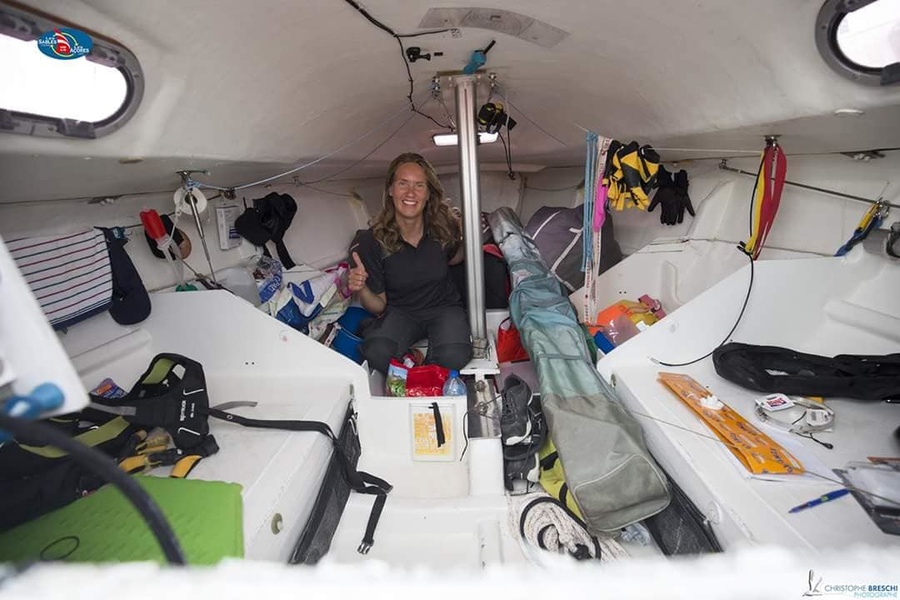
There is no possibility to cook, so in the race Irina feeds on sublimated and sterilized products. The food in hermetically sealed bags is already ready, it only needs to be heated with hot boiled water. There's boiling water on board.
In case of bad weather, there are chemical bags, which when reacted with water give 100 degrees and warm the food bag.
«Usually at a time I eat one bag of such food, the bag warms up for 12 minutes, and during this time I work with the sails and do some other things, after that I eat what I get as fast as possible», - says Irina.
For snacks in the race is available quite a limited set of products: one apple and orange a day, sometimes a jar of lemonade, some cookies, dried fruit.
No special tonics, energy or vitamins Irina does not use, only takes pills to make up for the lack of salts in the body after hard work on the yacht.
There is no desiccant on the yacht, all water is taken with you, at the rate of one to one and a half liters of water per day.
The boat is small, so you have to open it all the time, all the food is moving ballast inside the boat. And as soon as the wind changes, all the edible cargo and household items have to be dragged: to the bow of the boat, to the stern, or in the middle of the boat. Sometimes, having moved all the cargo to the right side, the racer would find out that she had nowhere to sleep.
This year Irina slightly improved her yacht by adding awnings. Now you can effectively move the weight inside and effectively open it, and the place to sleep is easy.
The sleep schedule is far from what we're used to in normal life.
Sleeping sporadically, from 5 to 20 minutes, one has to be alert all the time: whether the course is correct, whether the autopilot copes with wind and wave. And the storm is a real force majeure, and it happens here that it is not until sleep.
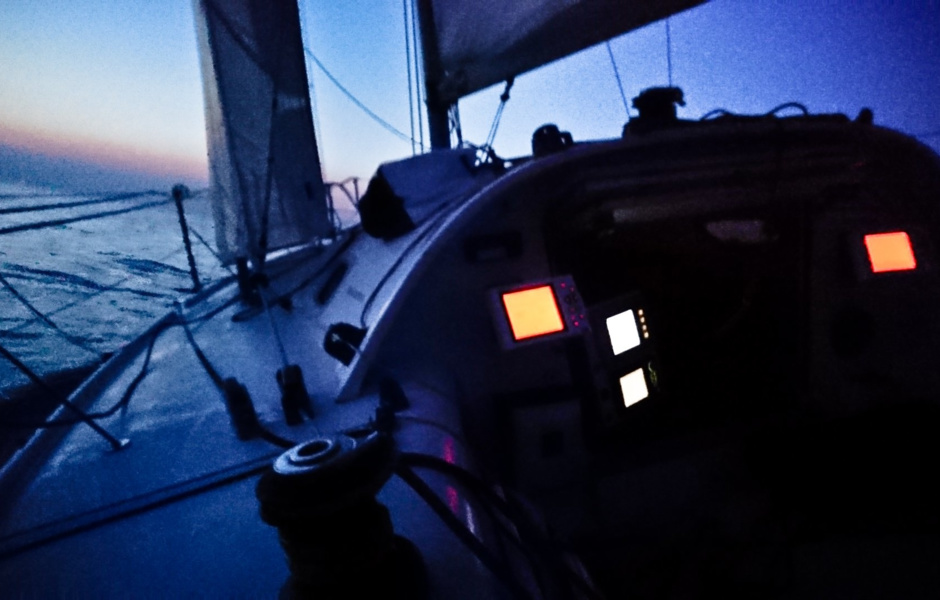
According to Irina, she has a scary beast living «on her yacht» - an alarm clock that will wake up the dead. Often she wakes up even a little earlier, climbs out of her sleeping bag and goes to the alarm clock in time to turn it off.
The maximum sleep time that can be set on this alarm clock is 90 minutes. Quickly fall asleep - the problem is only at first, you can always make an effort and try to fall asleep, even lie down and take off for 5, and if you are lucky, and 25 minutes is already a great help.
«I was hanging over the ocean, strapped to the yacht...»
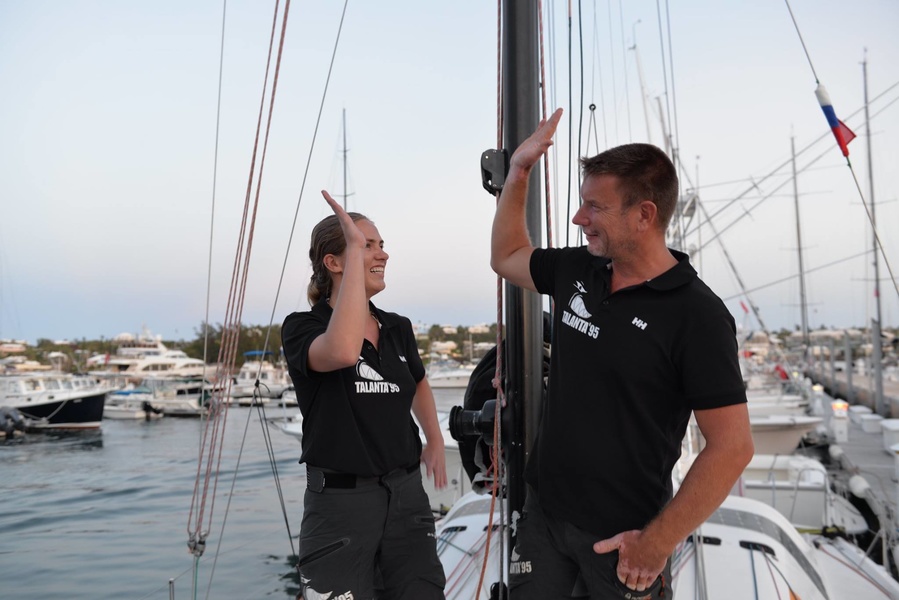
«Before I went to the Mini-Transat race alone, I wanted to take a similar route with someone on a pair. The idea to go to the Bermuda - Plymouth race originally came from Swedish skipper Mikael Ryuking, we were already familiar with other races. I accepted the offer, although I certainly lacked the preparation. In this crossing, first of all, we set a transatlantic record with a 40-foot sailing yacht across the Atlantic in just 13 days. Secondly, the experience gained in this crossing could be safely multiplied by two or even more»," Irina says.
The yachtsmen were caught in a storm that lasted 3 days and 3 nights, the wind force was more than 45 knots, and in gusts - up to 60. The wave in the center of the Atlantic reached 12 meters. Three days they walked, changing each other on watches every three hours.
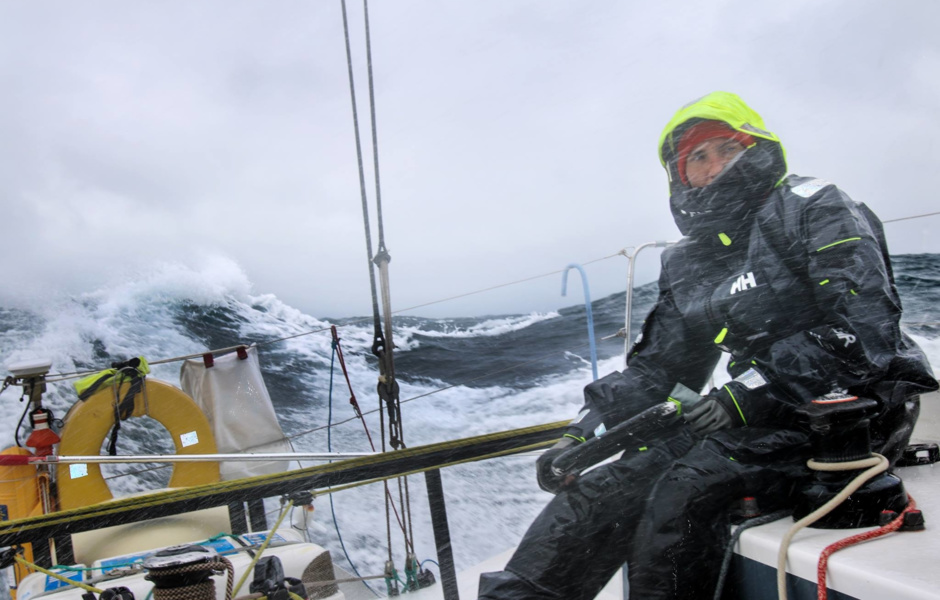
The third day of the storm, Irina was on duty.
«We were completely exhausted, soaked to the thread, because there was no point in changing clothes when we were on board in that environment. The autopilot, of course, wasn't working. On board, I met an abnormal wave. I saw it approaching, and I knew there was nowhere to go. Otherwise, I'd have an involuntary turn of the Fordewind, and nobody knows what it's fraught with. This wave overturned our yacht completely, mast and sails in the water, and she threw me out of the cockpit too. I found myself hanging over the ocean, strapped to the yacht with just a strap. When the wave passed, the yacht let go (they restore their position by themselves), got to the rudder and was able to take control of the situation. Thank God, our yacht did not have any special breakdowns, we took all measures in order to avoid the tragedy in advance. When the wind was up to 30 knots, it seemed to us like just a walk in the fresh breeze. We were able to fix the autopilot, clear it of sea water. After that Mikael and I changed clothes, got on the boat and slept for 4 hours side by side. I guess I didn't have the sweetest sleep».
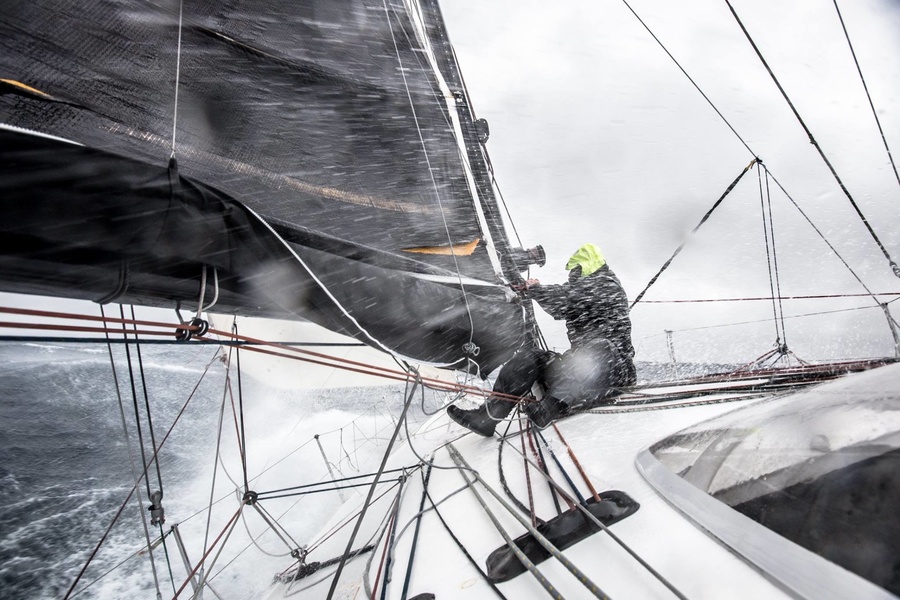
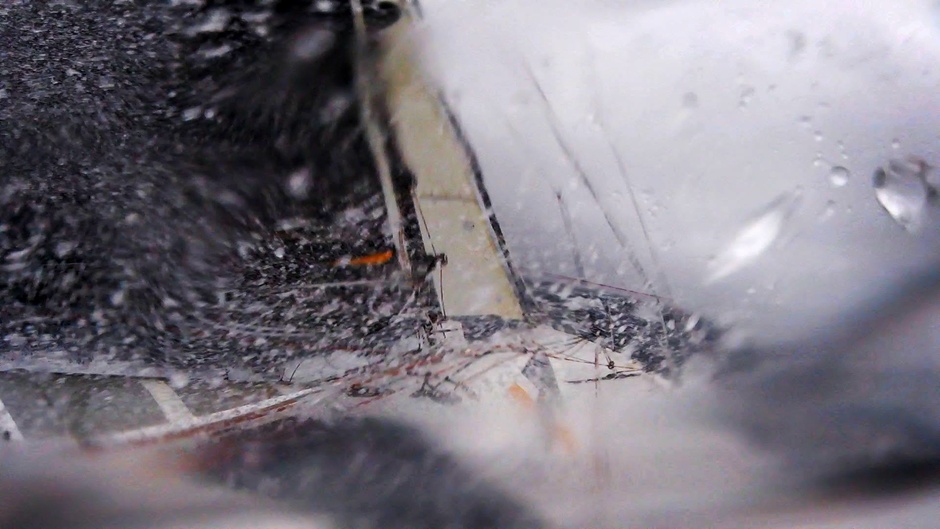
across the Atlantic without a satellite phone or a chart plotter.
This experience with the killer wave, as they sometimes call the abnormally high single wave, didn't make Irina go backwards. The rules of Mini-Transat regatta, during which she will have to cross the Atlantic alone, severely limit the use of modern technology in the race, but that is why here also serious attention is paid to safety issues.
As you know, the main idea of the Mini class is to promote amateur sport at a very high level. The emphasis is on the ability of a yachtsman to work with sails in the classical sense, without relying on modern technology and yacht gadgets.
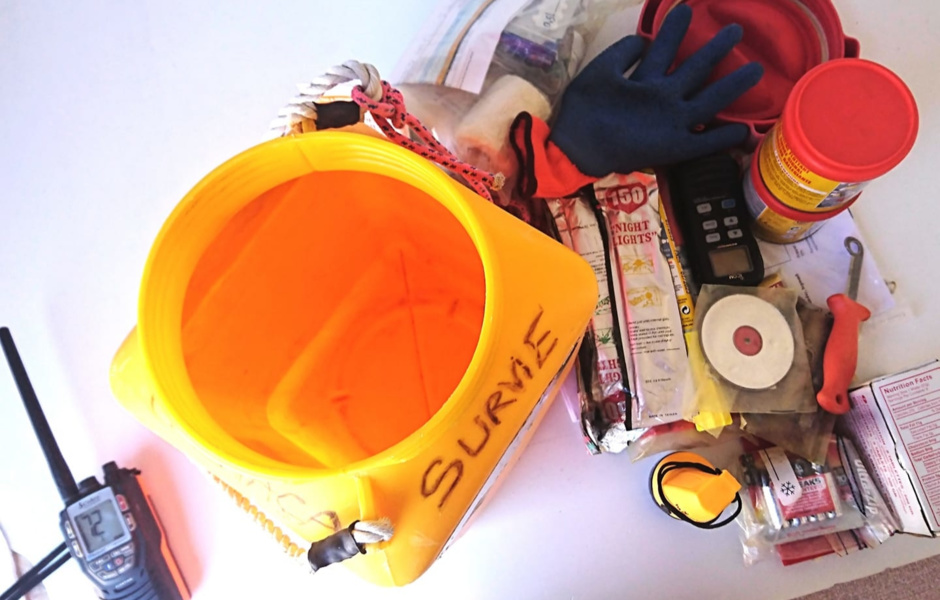
It is necessary to predict and understand the weather, to understand the navigation, practically not using technical devices. Carplotters and any equipment that can recommend courses depending on weather conditions are not allowed. Any communication with the ground, including the use of satellite phones, is forbidden. You can use GPS, but the easiest to know the coordinates. Shortwave radio is allowed, but drivers are only in contact with the same race participants, and if they are not far away. And the maps are only used on paper.
That's why the Mini class has a very serious safety requirement. Each yacht is equipped in the appropriate category. According to Irina, her rescue equipment weighs probably more than all her things on board the yacht. There are a couple of lifeguards and a fully equipped salvage flesh on board.
Each skipper is on a survival course at sea. In addition, the Mini-Transat race will be accompanied by 7 or 8 so-called escort ships, but they will go out of sight.
As it was said before, in Mini class absolutely any communication with the shore is forbidden, racers have no satellite phones, but there is a tracker, from which yachtsmen can send SOS to organizers. On this signal the escort vessel is sent to the specified coordinates. The signal automatically means that the race for the sender is over and he must leave the boat.
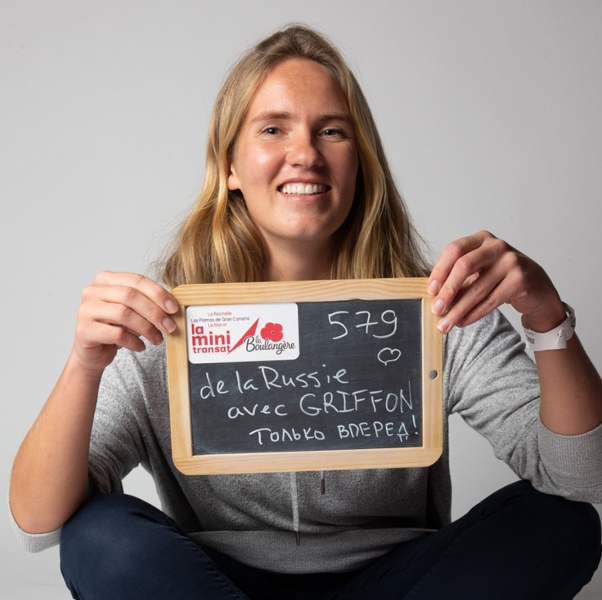
About the Mini-Transat race.
The Mini-Transat transatlantic race in the yachting world is incredibly popular. It starts in France, quite in keeping with the French national character. To pass it with dignity, and just to fit into the number of participants, you need to show a great stubbornness: first, to overcome the qualification, to gain the necessary number of miles in several races, and then go alone in two difficult stages on the Atlantic. First 1,350 miles from French La Rochelle to Las Palmas, then 2,700 miles from an island in the Canaries to Caribbean Martinique. This year's Mini-Transat 2019 includes two Russians - Fedor Druzhinin and Irina Gracheva. Irina is the first yachtswoman from Russia in the history of this world's largest regatta.


